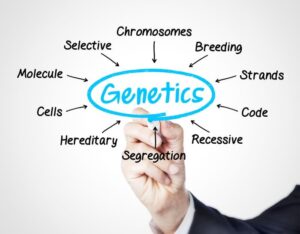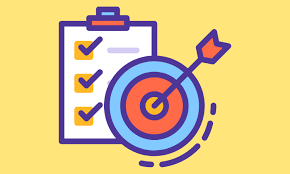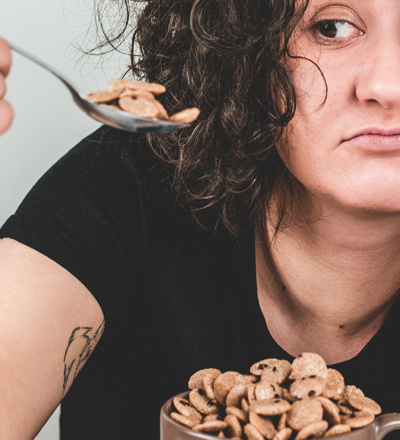Did you know that there is a connection between OCD and eating disorders? Many people are not aware of this, but the two are actually quite closely related. In this blog post, we will discuss the link between OCD and eating disorders, as well as some of the common symptoms of each condition. If you think that you or someone you know may be suffering from one of these illnesses, it is important to seek help right away!
Contents
Are OCD And Eating Disorder Related?
 OCD is described as an anxiety disorder that involves obsessions (recurrent, unwanted thoughts) and compulsions (repetitive behaviors or mental acts performed in an attempt to relieve anxiety). People with OCD often have very specific rituals and routines that they feel they must follow in order to quell their obsessions.
OCD is described as an anxiety disorder that involves obsessions (recurrent, unwanted thoughts) and compulsions (repetitive behaviors or mental acts performed in an attempt to relieve anxiety). People with OCD often have very specific rituals and routines that they feel they must follow in order to quell their obsessions.
Eating disorders, on the other hand, are characterized by an abnormal preoccupation with food and weight. People with eating disorders often have a distorted body image and may go to extremes in order to lose or gain weight.
So, are OCD and eating disorders related? The short answer is yes, they can be. It is believed that OCD and eating disorders share a common underlying cause: serotonin imbalance. Serotonin is a neurotransmitter that plays a role in mood, anxiety, and appetite. Studies have shown that people with OCD and eating disorders often have lower-than-normal levels of serotonin.
This connection between OCD and eating disorders is important to understand because it can help explain why people with OCD are at a higher risk for developing an eating disorder. It also highlights the importance of treating both disorders simultaneously.
What Is The Link Between The Two?
Now that we know what OCD and eating disorders are, let’s take a look at the link between the two. It’s important to note that not everyone with OCD will develop an eating disorder and vice versa. However, there is a strong connection between the two, which is why it’s important to be aware of the signs and symptoms of both.
There are a few different ways that OCD can lead to an eating disorder. For some people, their OCD obsessions center around food and weight. They may be obsessed with the calories in food, the fat content, or how much they weigh. This can lead to restrictive eating behaviors, as they try to control their intake. For others, their OCD may cause them to have contamination fears. This can lead to avoidance of certain foods or food groups, as they fear that they will make them sick.
Eating disorders can also develop as a way to cope with OCD. Some people use food and weight control as a way to deal with their obsessions and compulsions. Restricting food intake or purging can help them to feel in control when their OCD is making them feel out of control.
Unfortunately, this can quickly spiral into a full-blown eating disorder that is very difficult to break free from. Therefore, if you or someone you know is struggling with OCD and/or an eating disorder, it’s important to seek professional help. With treatment, it is possible to recover and live a healthy, happy life.
Is OCD Part Of Anorexia?
 Anorexia and OCD are both mental disorders that can cause a lot of distress and disrupt a person’s life. Though they share some similarities, they are two different conditions. However, it’s not uncommon for people with anorexia to also have OCD. In fact, research has shown that as many as one-third of people with anorexia also have OCD.
Anorexia and OCD are both mental disorders that can cause a lot of distress and disrupt a person’s life. Though they share some similarities, they are two different conditions. However, it’s not uncommon for people with anorexia to also have OCD. In fact, research has shown that as many as one-third of people with anorexia also have OCD.
The reason there is such a high comorbidity rate between anorexia and OCD is not fully understood. However, there are a few theories as to why the two conditions might be linked.
First, it’s possible that having one disorder makes a person more vulnerable to developing the other. This could be due to shared genetic risk factors or common environmental factors.
It’s also possible that the two disorders share some common psychological features. For example, both anorexia and OCD are characterized by perfectionism and a need for control. This could explain why people with one condition are more likely to develop the other.
Therefore, OCD can definitely be a part of anorexia. If you or someone you know has anorexia and is also experiencing symptoms of OCD, it’s important to seek professional help. Treatment for both conditions is essential for recovery.
Can OCD Stop You From Eating?
Obsessive-compulsive disorder, or OCD, is a common mental illness that can cause a lot of problems in day-to-day life. One of the most distressing symptoms of OCD can be related to food and eating.
For some people with OCD, thoughts, and fears around food can become so consuming that they stop eating altogether. This is known as an eating disorder called anorexia nervosa. People with anorexia nervosa see themselves as overweight, even when they are dangerously thin. They may obsessively count calories and restrict their food intake to the point where their health is in danger.
Other people with OCD may have the opposite problem. They may become obsessed with eating, even when they are not hungry. This is known as a binge eating disorder. People with binge eating disorder may eat large amounts of food in a short period of time and feel out of control while doing so. They may also feel guilty or ashamed afterward.
OCD can cause both anorexia nervosa and binge eating disorder. If you have OCD and are struggling with either of these eating disorders, it’s important to seek professional help.
How Can You Manage OCD Eating Disorder?
 It might seem like an oxymoron, but people with OCD can also have eating disorders. In fact, research suggests that as many as 1 in 3 people with OCD also have an eating disorder. So you should understand how can you manage OCD eating disorder. Here are a few tips to get you started:
It might seem like an oxymoron, but people with OCD can also have eating disorders. In fact, research suggests that as many as 1 in 3 people with OCD also have an eating disorder. So you should understand how can you manage OCD eating disorder. Here are a few tips to get you started:
Be honest with yourself
The first step is, to be honest with yourself. When you’re struggling with OCD, it can be easy to ignore your eating disorder behaviors. But if you want to recover, you need to be honest about what’s going on. This means acknowledging your thoughts, feelings, and behaviors related to food and body image. Because if you don’t, your eating disorder will only get worse.
Talk to your loved ones
It is essential that you talk to your loved ones about your OCD and eating disorders. This will help them understand what you are going through and how they can best support you. Your family and friends need to know that:
- May avoid certain foods or eat only certain foods due to fears of contamination or of gaining weight.
- May have intense anxiety around mealtimes or eat in front of others.
- Not being able to control your thoughts or behaviors around food.
- May compulsively exercise or engage in other activities to “make up” for calories consumed.
Practice relaxation techniques
It is important to learn how to relax if you suffer from OCD or an eating disorder. Relaxation techniques can help you deal with anxiety and stress, both of which can trigger OCD or eating disorder behaviors. There are many different relaxation techniques you can try, such as yoga, meditation, aromatherapy, and deep breathing exercises.
For example, aromatherapy can be used to help you relax and reduce stress. Lavender oil is one of the most popular essential oils for relaxation. You can add a few drops of lavender oil to a diffuser or add it to your bathtub.
Maintain a healthy lifestyle
It is very important to maintain a healthy lifestyle if you are suffering from OCD or an eating disorder. This means eating a balanced diet, getting regular exercise, and getting enough sleep. It also means avoiding drugs and alcohol, which can make symptoms worse. When you are healthy, you will be better able to cope with the challenges of OCD and eating disorders.
See a therapist
OCD eating disorder can be difficult to deal with on your own. If you think you may have an OCD eating disorder, it is important to see a therapist. A therapist can provide you with the tools and support you need to manage your condition. For example, therapy can help you learn how to cope with intrusive thoughts and compulsions. Some common types of therapy include:
- Cognitive-behavioral therapy (CBT)
- Exposure and response prevention (ERP)
- Acceptance and Commitment Therapy (ACT)
Consider talking dietitian
Eating disorders can be incredibly dangerous, and even deadly. But what many people don’t realize is that there is often a close connection between eating disorders and other mental health conditions, such as OCD. A dietitian can help in two ways. First, they can develop a nutritional plan that meets your needs and helps you to avoid any triggering foods. They can also provide support and guidance as you work to overcome your eating disorder.
Set realistic goals
 Now, setting a realistic goal is the key to success for people with OCD and eating disorders. This means that if you want to lose weight, you need to do it in a healthy way by making small changes to your diet and lifestyle. For example, you might start by cutting out sugary drinks and snacks, or eating smaller portions at meals. If you’re trying to gain weight, you might start by adding an extra serving of fruit or vegetables to your diet each day.
Now, setting a realistic goal is the key to success for people with OCD and eating disorders. This means that if you want to lose weight, you need to do it in a healthy way by making small changes to your diet and lifestyle. For example, you might start by cutting out sugary drinks and snacks, or eating smaller portions at meals. If you’re trying to gain weight, you might start by adding an extra serving of fruit or vegetables to your diet each day.
Making these kinds of changes can be difficult, but it’s important to remember that even small steps can lead to big results over time. So don’t get discouraged if you don’t see immediate results, just keep working towards your goals!
With these tips, you can start to take control of your OCD and eating disorder, and finally start living the life you want.
Conclusion
To conclude, OCD eating disorder is a real and serious problem. This can manifest itself in many different ways, but the most common form is when someone with OCD becomes obsessed with food and weight. This can lead to an eating disorder such as anorexia or bulimia. If you or someone you know is struggling with OCD and food, it is important to seek professional help.
There are many resources available to help you understand and manage your OCD. So you should not hesitate to ask for help if you feel like you need it. If you think you might have OCD, please see a mental health professional for an accurate diagnosis and treatment recommendations.
If you are struggling then please contact Therapy Mantra for help. The team of experts here will be more than happy to help you out and get you on the path to a better life. Contact us today to learn more about our services. You can also book an online therapy session or download our free Android or iOS app.


